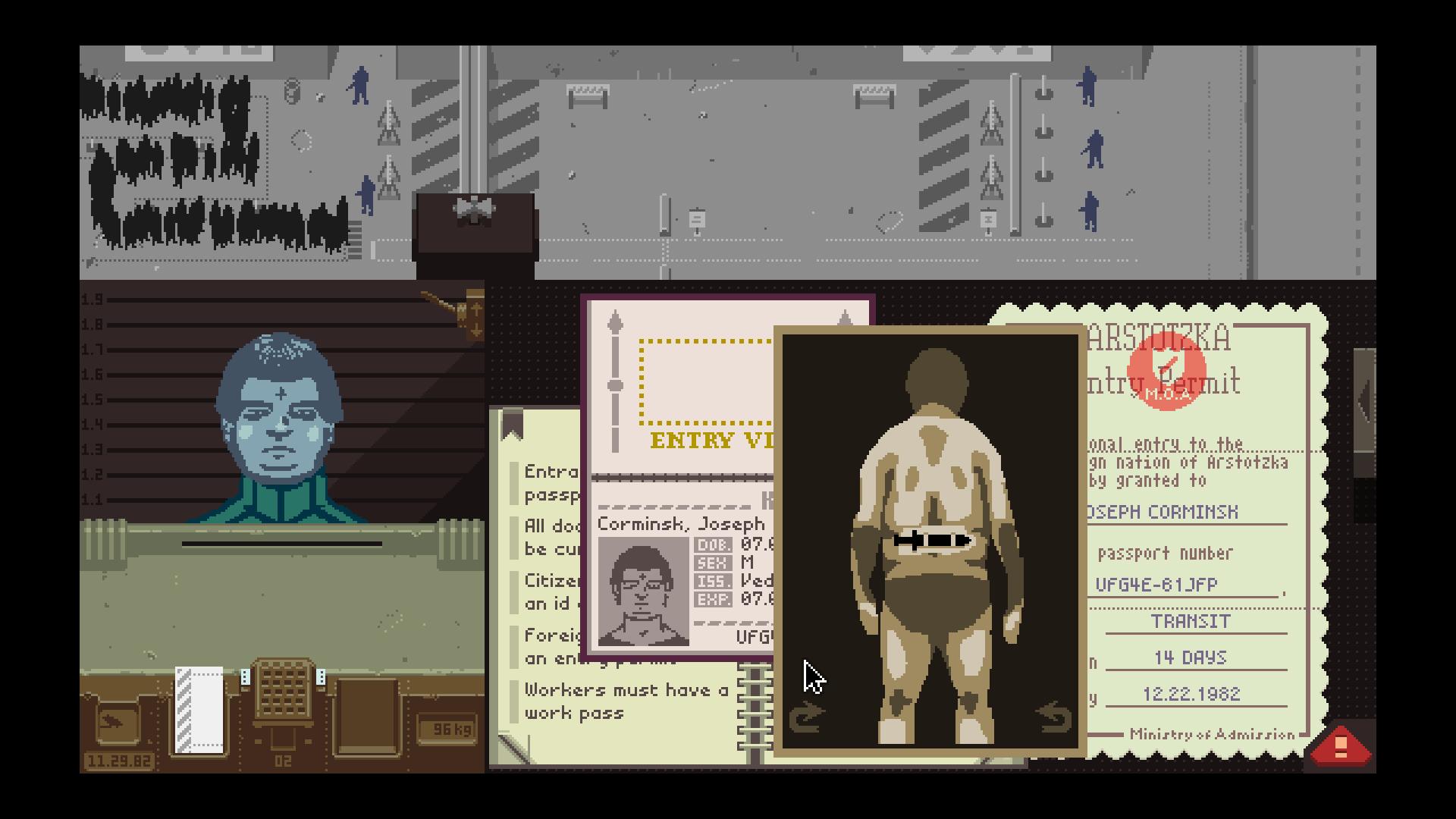Immersion by Consequence: A Look Into Total Gaming Immersion
Trying to dissect immersion in a video gaming can be like writing an analysis of a comedian’s humor. By identifying and picking apart the little magic threads that turn disparate parts into a unified, (hopefully) enjoyable whole, you risk losing some of the finished product’s charm. Of course, these aren’t entirely accurate comparisons, since analyzing game immersion won’t end with drunken fans trying to force you off the stage. Generally, that is. The markets for immersion – and the titles in which immersion crops up – have a healthy degree of diversity. Some gamers choose their titles with the express purpose of engaging in heavy immersion or role-playing experiences. Others pick up a title that, ostensibly, has nothing to do with immersion or storytelling, but still find themselves enveloped in the game’s universe. Yes, there is a certain strain of fantastical nether-energy that transforms a game from pixels into immersion, but I’m not convinced that the methods of immersion should be nearly as hush-hush as the magic of humor (henceforth termed Arcana Comedia). Without further adieu, I present a brief discourse in video game immersion.
The Definitive Answer
Before we launch ourselves too far into the depths of this topic, we should probably define the term immersion. A quick Google search will reveal that immersion is “the action of immersing someone or something in a liquid.” Therefore, submarine simulators and Bioshock have inherent advantages over their land-based counterparts. Well, unless you take the video game definition figuratively, which we probably should. This core definition actually speaks volumes (no pun intended) about the nature of immersive gaming. You, the player, immerse yourself in a fictional world, and you’re expected to operate within the confines of this strange place. Your setting may be realistic – in fact, many titles with heavy immersion are as real as they come, right down to friendly-fire mix-ups and botched landings – or it may be fabricated from the ground up, relying on endless lines of coding to coax your brain to another dimension. The process sounds horrifying, and should it not? You’re subjecting yourself to voluntary hallucinations, and in some ways, you’re amused when the game succeeds in luring your mind away from reality.
Humans are strange, strange animals.
So as we plunge (semi-intended) into the world of immersion, we should be cognizant of what the term means. We should consider that gaming is not designed to force its setting upon us, but rather drop away the gangplank and leave us doggy-paddling above these fictional riptides. Once we surrender and lose ourselves to the madness, we’re immersed. And it’s rather enjoyable.
A Tale of Two Immersions
One type of immersion – seeing as I arbitrarily created two categories – is immersion by theatre. Immersion by theatre is the immersion that most people envision. It revolves around polished, beautiful graphics, and a game world overflowing with NPCs and emergent behavior. It thrives off thousands of branching quests, and a complex system of morality and interaction with the world. It expects you to behave like a denizen of the world, because the game’s presentation and high production value transport you to the world and keep you there with consistent logic. Detailed voice acting, environmental details such as rain and particle effects, and scripted events lend themselves to an experience that is enjoyable and can be rather enveloping, but sometimes misses the mark of true immersion.
True immersion, you ask?
In my eyes, true immersion is the sort you feel in your gut, whether you like it or not. It’s immersion by consequence.
This second breed of immersion, and in my opinion the more fascinating sort, does not rely upon the world’s graphical presentation or game logic. Immersion by consequence is fueled by the ramifications of your actions, and how the game impacts your thinking patterns and emotional responses. It demands that you, the player, take on the mindset and demeanor of the character or entity that you represent in this world. It should be noted that these two categories often overlap, but some games are more closely tied to one sort than the other.
The Three Kings

Immersion by consequence can be easily demonstrated by the Thief series, the indie hit Papers, Please, and the Rainbox Six franchise. Let’s take a moment to examine them on a case-by-case basis. Thief, in its original form, was a game that demanded stealthy performance and finesse from its players. Yes, it was possible to awkwardly stab guards to death, but you felt sloppy and inept by resorting to this option. The true thrill of Thief was based in sneaking around, listening to the soft patter of footsteps on carpets, and planning your mastery thievery with a trained burglar’s eye, right down to the flawless escape. The graphics themselves were nothing extraordinary, even with the light and shadow mechanics, but the ease of placing yourself into the shoes of a thief was the real achievement. The player was expected to swim through mounds of lore; they were given an objective and a desired outcome, and more often than not, the player assumed the role of their character and began to view the world through the eyes of our esteemed kleptomaniac.

The next title, Papers, Please, was not concerned with its graphical elements at all. It revolves around you, the lowly desk worker in a pseudo-Soviet border checkpoint, who must decide the fate of travelers and assassins alike as you pour over identification cards and fingerprint scans. Determining who should be let into the country – and more importantly, who should be detained for “questioning” – was not emotionally resonant because of the pixilated desk you had, or the garbled nonsense of your booth’s sound system. It was resonant because you experienced the clutter of the desk, and the overseers who docked your pay and reprimanded you, and the terror of letting the wrong person through, or keeping the right person out. The player was not told to live this guard’s life at home, but they received glimpses of the domestic sphere through crayon drawings and a salary total, revealing exactly how much your family was set to lose, and how close you were to starvation. Before long, even the most casual player could become absorbed in the game’s cocktail of anxiety, monotony, and demands of callous bureaucracy.

Perhaps most indicative of immersion by consequence – a self-created category bolstered by games that I use subjectively to support my arguments – is Tom Clancy’s masterpiece series (at least, its first few titles): Rainbow Six. Even in its earliest days of low-res and awkward sound clips, Rainbow Six made a name for itself because of its strict adherence to realism and the high-strung tension of maneuvering your deadly-killer-bang-bang-force against the enemy’s deadly-killer-bang-bang-force. You could die within one or two hits, and every doorway was a new opportunity to lose your entire team in a burst of Kalashnikov fire. You were expected to plan your missions carefully on the overhead maps, and to dread the “man down” chatter that followed a distant burst of gunfire. You could run missions where you lost half of your team, but still completed the objective, but they were hollow victories. You viewed the missions as intense, flashpoint encounters where you had to operate with the skill and speed of a surgeon working on his own wife’s heart transplant. The moods fluctuated from panicked to detached calmness, and all the while, you watched the maps, and your ammunition count, and your cleared rooms, becoming the super SEAL operator you’ve always wanted to be for a few rare moments.
In Closing
Immersion by consequence is not about the game’s high-fidelity graphics, or its endless hours of content with cities modeled from scratch, but rather about feeling. It’s about experiencing immersion without forcing yourself to take the plunge. Immersion by consequence is the sort of immersion that makes you, a stand-up human being, kill fellow people and take their goodies in Day Z. It’s the sort of immersion that makes you rent an inn room in Baldur’s Gate, because your character would never rest on the open road. This sense of realism goes beyond what we perceive, and into what we project. And, of course, it’s magic.
Almost as magic as Arcana Comedia.

